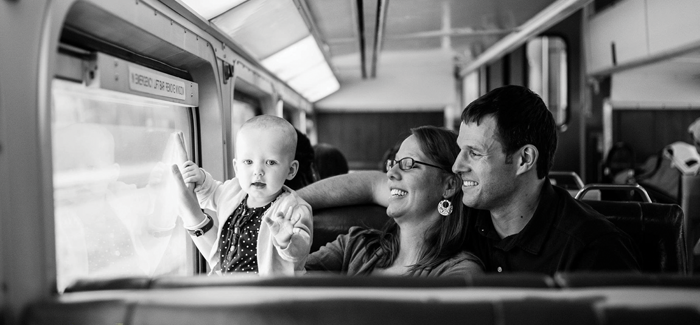
Before doctoral student Samuel Perry, AM’10, arrived at the Division of the Social Sciences, he pursued the ministry, attending the Dallas Theological Seminary until he realized, “Maybe I don’t want to be a pastor. I think I want to be a professor.” Now he lives with his wife and toddler daughter in Crown House, where he is a resident head.
While he finishes his dissertation, “Defend the Orphan: Culture and Activism in the Evangelical Orphan Care Movement,” with adviser Omar McRoberts, AB’94, associate professor in sociology, Perry teaches Poverty, Race, and the Politics of Reproduction and is an author on forthcoming papers in Social Science Quarterly, the Journal of Family Issues, and Sociology of Religion.
Perry discusses blending spirituality and sociology, in an interview with Dialogo, edited and adapted below.
His path to the social sciences
My parents adopted two African American girls when I was four. You could say that gave me a protosociological eye for thinking about things, like how race works, what is racism, and not understanding it—why would people dislike my sisters for some reason? When I discovered sociology toward the end of my undergraduate career, I realized these were questions I wanted to explore.
From family to dissertation
I’m studying a movement among conservative Protestants in the United States who are engaged in what I broadly call orphan care activism. What got me started was knowing that my family didn’t adopt because of fertility but because they felt that God wanted them to. Now it’s a full-blown movement, with coalitions and evangelical elites promoting it as something that Christians need to do. What is the role of culture in shaping this movement and the motivation of the families who might be paying $40,000 to adopt an older child from overseas who is HIV positive?
Academic aims
I want to open college students’ eyes to inequality and how they can do something about it, either by affecting public policy or changing the way they live. I would like to make them aware of the ways social structure can influence the life outcomes of the vulnerable and the disadvantaged.
Faith and science
I split those things up. The scientific method can’t touch things that are unobservable; it can’t tell me there’s a God. It can’t speak to historical events, because historical events aren’t reproducible. It can’t tell me what is ethical. But sociology allows me to critique Christianity, like the ways it has been infected by aspects of culture that are not elemental to that faith. Sociology informs my faith, which helps inform my sociology and the things I find important to pursue academically.
